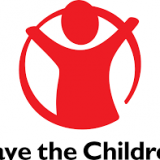MONITORING:
· Work closely with Hawassa Field Office MEAL Manager to ensure all MEAL documents are in place for all types of monitoring; evaluations; accountability; and learning.
· Facilitate and conduct regular supportive supervision, technical assistance, award kick off and close out meetings, review meetings, and joint integrated supervision with partners.
· Conduct supportive supervision on regular basis, monitor the implementation of QBs at least once/quarter, update Indicator Performance Tracking Tool (IPTT) on monthly basis and use for performance improvement.
· Ensure that regular reports including MEAL reports are generated from monitoring data and findings are communicated to Child Protection & Education Program Manager and appropriate persons for improvement action and managerial decision-making.
· Update and report supportive supervision Action Plan Tracker whenever supervision is conducted.
· Fill and report QBs database whenever there is QBs monitoring visit; update and use Indicator Performance Tracking Tool (IPTT) to monitor performance progress.
· Tracks and document key Child Protection & Education project indictors’ progress and achievements.
EVALUATION:
· Provide technical support and participate on baseline survey, assessment and evaluations.
ACCOUNTABILITY:
· Develop and implement detailed project work plan for rolling out the MEAL system at program and regional level.
· Provide technical support to Child Protection & Education Program Manager on developing and implementing MEAL plan, tools, checklists, and project progress tracking tools.
· Support project staffs to collect good quality monitoring data in a timely manner and organize data received for reporting to the country office, Hawassa Area Office, and Jinka Field Office.
· Provide technical assistance and capacity building for project staff and partners’ staff on development and use of MEAL tools and methodologies.
· Prepare quality and on time project periodic reports [monthly, quarterly & annual] to Program Manager; and monthly and quarterly MEAL reports to MEAL Manager (Hawassa Field Office).
· Conduct periodic monitoring (Establish accountability mechanism at program operational sites; collect beneficiary complaint and feedback (CFRM); ensure participation of children, community and vulnerable groups; establish information sharing mechanism to ensure the project progress is on the right track against Save the Children standards through participatory methodologies (including child-friendly approaches/methodologies).
· Ensure that children, women and other vulnerable community members are participated on MEAL activities and project interventions.
· Collect beneficiary complaint and feedback on monthly basis. Fill and report CFRM database whenever beneficiary complaint and feedback is collected.
· Lead on accountability activities, including the development and use of information materials, accountability mechanism establishment at program operational sites and ensure the collection of beneficiary complaint and feedback on monthly basis. Ensure Child Safe guarding (CSG) activities and gender issues are integrated in routine project activities and MEAL activities.
· Provide orientation to new project staff on MEAL issue and work with all staff in the field office to increase capacity on accountability mechanism.
Ensure children, women and other vulnerable community members are participating in project activity implementation throughout program operational sites.
· Ensure information (Save the Children vision, mission, values; project interventions, CSG, partnership and working with community, gender equality) is shared to children, community, beneficiaries and partners and included in monthly reports.
LEARNING & KNOWLEDGE MANAGEMENT (LKM):
· Promote/ensure learning throughout the field office, particularly on issues of programme quality. Regularly produce and report on best practices and case stories and document for institutional memory and future activities.
· Monitor and ensure the collection of case stories; facilitate/participate on learning sessions (workshops, review meetings, experience sharing sessions); ensure gender equality and women participation on meetings, learning sessions and activities.
· Awareness raising for children/community on child safeguarding policy and children safeguarding issues as a whole.
Perform other relevant duties and responsibilities as assigned by his/her immediate supervisor.
Job Requirements
MINIMUM QUALFICATION AND EXPEREINCE
- At least BA in education, social sciences and other related technical fields.
- Minimum of 4 years of proven experience in the field of MEAL with international organizations experience preferably in education, child protection and health settings.
- Good knowledge and experience in Early Childhood Care and Education and basic/primary education and child protection programing particularly in pastoralist community .
- Willingness to travel to a hardship area
- Team working and ability to work under pressure
- Good data management and computer skills (Microsoft word and excel).
- Good communication skills – in English and Amharic al language.
- Good organization and attention to detail
- Strong report writing skills
More Information
- Job City Jinka, SNNPR


